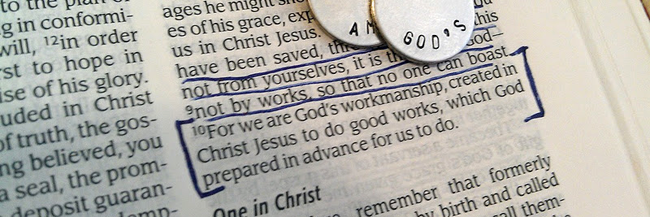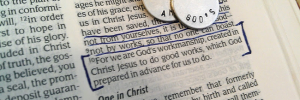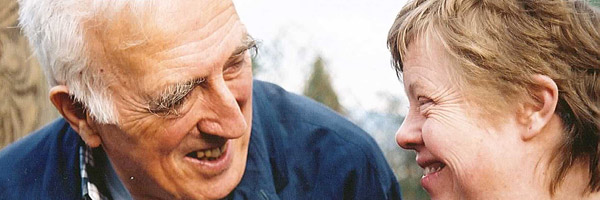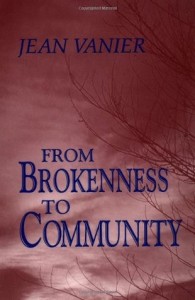There is no Asterisk
Category : Christian Views on Disability , Disability Attitudes , Disability Theology
The concepts discussed in this blog and on this website are not new, but are sometimes received as though they are revolutionary. Yet there is nothing truly unique about these thoughts.
And I’m not just talking about the fact that similar attitudinal structures have been developed by people like Jean Vanier and Bill Gaventa, though they have been, and long before we developed The 5 Stages.
It’s in the Bible
I’m talking about the fact that the foundation for The 5 Stages is found in the Bible. It’s found in the way that Paul, specifically, talks in his letters to Timothy, to the Thessalonians, and to the Ephesians. It’s simply not news.
From 2 Timothy 3:16 & 17:
All Scripture is God-breathed and is useful for teaching, rebuking, correcting and training in righteousness, so that the servant of God may be thoroughly equipped for every good work.
1 Thessalonians 5:11:
Therefore encourage one another and build each other up, just as in fact you are doing.
Ephesians 2:10
For we are God’s handiwork, created in Christ Jesus to do good works, which God prepared in advance for us to do.
So what do those verses have to do with anything? How do they show us that people with disabilities are supposed to be part of our churches, our communities? More than that, how do those verses tell us that people with disabilities are called to the work of the Kingdom?
It’s really simple, actually. There is no asterisk.
People with Disabilities are Called to Kingdom Work
There is no asterisk on these verses. Like an asterisk that would send your eyes to the bottom of the page, where you would see ‘except for people who have disabilities,’ or ‘except for people who are depressed,’ or ‘except for children who can’t communicate.’
But even though there is no asterisk, we often subconsciously put an asterisk on these verses. Are we assuming that people who have disabilities are not called by God to do His work? Do we believe, even slightly, that people with different abilities are not supposed to be challenged, equipped, and encouraged for every good work, “which God has prepared in advance for them to do”?
Who Do You Know that Doesn’t Understand This?
Maybe these questions are for you, and maybe they are for you to ask other people. Are you putting an asterisk on these verses? Are you absolving people with disabilities from the Kingdom work of God?
Because there is no asterisk, unless we put it there.
![]() Dan Vander Plaats is the Director of Advancement at Elim Christian Services in Palos Heights, Illinois, a ministry that exists to equip people who live with disabilities to answer God’s call on their lives. He is also a member of the advisory committee for Disability Concerns for the Christian Reformed Church. In 2009, he developed “5 Stages: The Journey of Disability Attitudes” as a resource for Elim. The 5 Stages helps churches and individuals assess their attitudes toward people with disabilities. He is married to Denise (Hiemstra), and is father to Ben and Emma. They are members of Orland Park Christian Reformed Church in Illinois.
Dan Vander Plaats is the Director of Advancement at Elim Christian Services in Palos Heights, Illinois, a ministry that exists to equip people who live with disabilities to answer God’s call on their lives. He is also a member of the advisory committee for Disability Concerns for the Christian Reformed Church. In 2009, he developed “5 Stages: The Journey of Disability Attitudes” as a resource for Elim. The 5 Stages helps churches and individuals assess their attitudes toward people with disabilities. He is married to Denise (Hiemstra), and is father to Ben and Emma. They are members of Orland Park Christian Reformed Church in Illinois.



